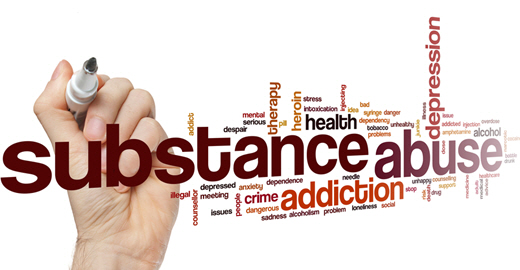A Comprehensive Overview to Substance Abuse Rehab
Substance Abuse recovery, typically described as rehab, is an organized procedure developed to assist people conquer dependancy on drugs, alcohol, or other habit forming compounds. It is not just about cleansing-- it is a trip of mental, emotional, and physical makeover. Rehabilitation centers supply secure environments where individuals can challenge the origin causes of their dependency, address psychological triggers, and learn coping devices to receive long-term sobriety. This procedure is led by qualified experts, consisting of specialists, clinical doctors, and counselors who understand the complicated nature of addiction as both a behavior and physiological problem.
Comprehending the Core of Substance Abuse Abuse Recovery
At its core, rehabilitation has to do with reconstructing a person's life. Dependency frequently leaves behind deep scars-- strained connections, monetary distress, wellness issues, and mental illness. Through comprehensive rehab programs, people are given the devices to repair these elements progressively. Rehab isn't nearly abstaining from compounds; it has to do with recovering control and finding one's feeling of self-regard. The programs highlight structure, consistency, and individual liability, which are crucial to long-lasting recovery success. Every small milestone during rehab serves as a foundation for lasting soberness.
Furthermore, Substance Abuse recovery is not a one-size-fits-all technique. It recognizes that everyone's addiction tale is special-- what caused Substance Abuse misuse, just how it advanced, and how recuperation can be continual vary commonly. Consequently, therapy facilities personalize care plans based upon individual evaluations, guaranteeing that every individual obtains support that aligns with their mental state, addiction history, and life conditions. This tailored strategy greatly boosts recuperation end results and helps stop regression once people rehabilitate right into day-to-day life.
The Advantages of Inpatient Rehabilitation Programs
Inpatient rehabilitation, likewise called property treatment, provides one of one of the most reliable techniques for those fighting extreme Substance Abuse addiction. One of its main advantages is the organized and distraction-free environment. When an individual enters an inpatient facility, they are briefly eliminated from outside triggers-- such as good friends who use materials, stressful workplaces, or family conflicts-- that could impede their recuperation. This isolation from negative impacts permits patients to concentrate entirely on recovery. Living within a encouraging and monitored setting creates the security needed to break old practices and develop much healthier patterns of behavior.
An additional major benefit of inpatient rehab is the 24/7 specialist guidance offered to each client. Withdrawal signs from medicines or alcohol can be unforeseeable and, sometimes, dangerous. Inpatient centers have medical groups that give day-and-night treatment, ensuring clients are secure and comfy throughout detoxing. Beyond physical wellness, continuous guidance likewise offers emotional confidence-- patients recognize that aid is available at any moment, which decreases anxiety and develops rely on the recuperation procedure. This instant access to psychological and clinical assistance substantially enhances the success price contrasted to outpatient take care of severe addictions.
Inpatient rehabilitation programs foster a solid feeling of community and responsibility. People connect with others who share similar battles, join team therapy, and take part in tasks that urge team effort and empathy. This atmosphere nurtures shared understanding and minimizes sensations of isolation commonly associated with dependency. By connecting with peers and discovering from their experiences, people establish social bonds that proceed to sustain them even after leaving the facility. This feeling of belonging, incorporated with constant expert guidance, makes inpatient rehabilitation a very efficient structure for lasting healing.
Inpatient Rehabilitation Solutions Offered
Inpatient rehab centers offer a diverse series of services made to treat the body, spirit, and mind concurrently. The initial stage typically entails clinical cleansing, a process that securely removes compounds from the body while handling withdrawal symptoms. Detox is managed by physician that may administer medicine to ease pain and protect against complications. As soon as detoxification is complete, clients transition to structured everyday programs that consist of health, therapy, and treatment activities. This integrated strategy makes sure that individuals not just get rid of physical reliance however also address emotional and emotional facets of addiction.
Healing solutions are at the heart of inpatient rehab. Facilities deal person treatment sessions, where patients function one-on-one with qualified therapists to reveal the underlying causes of their dependency-- such as trauma, psychological health and wellness disorders, or unsolved emotional discomfort. Cognitive-behavioral therapy (CBT), dialectical behavior modification (DBT), and motivational interviewing are among one of the most usual evidence-based methods used. Furthermore, group therapy sessions give an encouraging space for clients to share experiences, gain perspective, and establish interpersonal skills. Household therapy is likewise frequently consisted of, assisting to rebuild trust and improve interaction between individuals and their liked ones.
Past typical treatment, numerous inpatient programs consist of alternative and recreational solutions to promote overall health - Inpatient rehab. Yoga exercise, meditation, art therapy, and fitness programs help in reducing stress and anxiety and educate mindfulness. Nutritional counseling makes certain that clients reconstruct physical health and wellness, as Substance Abuse typically diminishes the body's important nutrients. Some rehabilitation focuses also supply vocational training and academic workshops to help individuals get ready for reintegration right into culture. These varied solutions are developed to heal the entire person-- not just treat addiction signs-- by promoting resilience, equilibrium, and function
Why You Should Think About Outpatient Programs
While inpatient rehab supplies a extensive and immersive approach, outpatient programs provide an alternative that enables adaptability for people that can not dedicate to permanent domestic treatment. Outpatient rehab enables people to get structured treatment and clinical support while keeping their everyday duties-- such as job, college, or family members care. For many people with mild to moderate addiction, outpatient treatment supplies the best balance in between recovery and day-to-day life. It permits clients to practice the coping skills they learn in real-world environments, reinforcing their strength despite everyday obstacles.
Another reason to consider outpatient programs is their cost-effectiveness. Inpatient treatment can be pricey due to holiday accommodation, dishes, and 24-hour guidance, which might not be economically feasible for everyone. Outpatient programs, however, commonly set you back less due to the fact that they do not call for residential remains. Several facilities supply sliding-scale settlement options or accept insurance to make therapy easily accessible. For those that have actually currently finished inpatient rehabilitation, transitioning right into an outpatient program acts as a useful continuum of care, aiding maintain liability and prevent regression through continuous assistance.
In addition, outpatient programs use a high degree of personalization. People can pick in between partial hospitalization programs (PHP), intensive outpatient programs (IOP), or common outpatient care, depending upon their degree of need. Each option provides differing degrees of structure and time dedication. For instance, IOPs generally involve numerous treatment sessions each week, while common outpatient care may consist of once a week counseling check outs. This adaptability makes sure that clients can receive professional assistance tailored to their healing phase, making outpatient programs a practical and empowering selection for lasting recovery upkeep.

Checking Out Various Other Treatment Choices basically Abuse Recuperation
Beyond outpatient and inpatient rehab, there are several various other therapy choices readily available for individuals looking for recuperation from Substance Abuse dependency (rehab near Chester NJ). Medication-assisted treatment (FLOOR COVERING) is one such strategy, incorporating suggested drugs with behavior modification to handle withdrawal signs and symptoms and decrease food cravings. Drugs like buprenorphine, methadone, or naltrexone are frequently used in opioid addiction therapy, while acamprosate or disulfiram might support alcohol recuperation. MAT aids stabilize brain chemistry, allowing people to concentrate on treatment and way of life changes without the frustrating pain of withdrawal

Alternate therapies are likewise coming to be significantly preferred in Substance Abuse Abuse therapy. These may include holistic techniques like acupuncture, horse treatment, adventure-based therapy, and spiritual recovery programs. While these strategies may not change typical treatment, they can match it by boosting psychological policy, self-awareness, and self-confidence. The objective of checking out various therapy choices is to create a recuperation strategy that reverberates with each person's values, beliefs, and way of living. A customized combination of treatments commonly produces one of the most lasting results, empowering individuals to live a pop over to this site fulfilling, substance-free life.
The Path to Long-Term Soberness and Healing
Finishing rehabilitation-- whether inpatient or outpatient-- is only the start of a lifelong recuperation journey. Aftercare programs play a crucial role in preserving sobriety and avoiding relapse. These programs might include ongoing treatment, assistance groups like Narcotics Anonymous or Twelve Step Programs, and sober living plans that offer continued framework. Uniformity and community are crucial; individuals who stay connected to healing networks are extra most likely to sustain long-term progress. Rehab educates the necessary coping skills, yet aftercare makes certain that those abilities are used and enhanced in real-life circumstances.
Long-term recuperation additionally relies on lifestyle adjustments that support psychological and physical health. Establishing healthy and balanced practices-- such as normal workout, well balanced nourishment, and mindfulness techniques-- helps restore balance to the mind and body. Participating in purposeful activities like volunteering, going after leisure activities, or reconnecting with loved ones can load the psychological space left by Substance Abuse use. Concentrating and developing a positive frame of mind anonymous on future goals offer recuperating individuals a restored feeling of identity and direction. Sobriety is not regarding deprival; it has to do with redeeming life's splendor and opportunities.

Through comprehensive rehab programs, people are offered the tools to repair these aspects progressively. Inpatient rehabilitation programs promote a strong sense of area and liability. While inpatient rehabilitation provides a intensive and immersive strategy, outpatient programs supply an option that allows adaptability for people who can not commit to permanent property treatment. Outpatient rehab allows individuals to this hyperlink get structured therapy and clinical support while maintaining their day-to-day obligations-- such as family, job, or school care. Past inpatient and outpatient rehabilitation, there are a number of various other treatment alternatives offered for people seeking recuperation from Substance Abuse dependency.